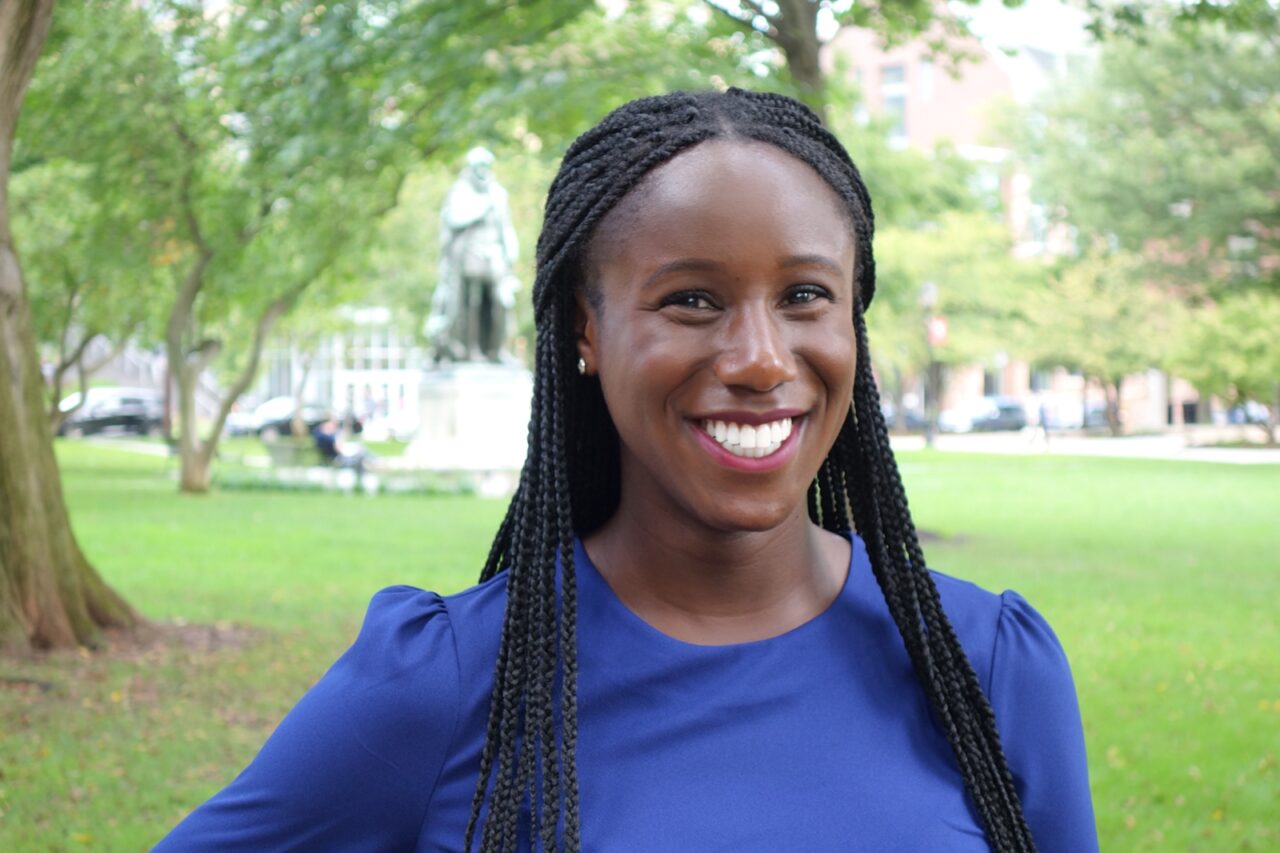Esty’s Research Honored by Association of Black Women Historians

Assistant Professor of African American Studies Kaisha Esty’s recent article on African American women’s and girls’ battle during the Civil War over labor and sexual consent was named winner of the 2022 Letitia Woods Brown Article Prize for the best article in African American women’s history.
The prize is awarded by the Association of Black Women Historians.
“The shifting legal ground and character of the state that Black women and girls confronted reveals their fraught historical relationship to notions of sexual consent within the framework of Western liberalism. Their strategies speak to the ultimately burdened ways that African American women were compelled to seek sexual freedom in the mid- to late nineteenth century United States,” Esty wrote in her article.
Early in the Civil War, most of the African Americans who fled to Union lines were men. After the passage of the Emancipation Proclamation in 1863, greater numbers of African American women, children, and elderly people were refugees from the plantations of the South.
Scholars believe that there were somewhere between 250 and 450 cases of sexual assault brought to Union authorities during the Civil War, a number that almost assuredly underrepresents the actual number of cases and instances. The majority of the incidents reported to the authorities involved Black women and girls, Esty said.
“They were very much involved in the fight for their own freedom, but as a result of working in Union military encampments, they were often subject to sexual violence,” Esty said.
The assumption of sexual availability was a part of Black women’s enslavement. However, once the women and girls escaped slavery and joined the Union cause, rather than escape that particular aspect of their oppression, the same rules seemed to apply.
Women just released from bondage were faced with a conundrum: the people and systems who were supposed to enforce their freedom were, at the same time, bringing harm, Esty said.
Many of the recently freed women who had been assaulted took what was a courageous and often unprecedented step—they approached military authorities with their complaints.
In her article, Esty delved into records of these legal proceedings. The quality of the records varied depending on how seriously the accusations were taken and the diligence of the military participants. In some instances, the names of the accusers were not mentioned. Black women did not have their own legal representation. The men accused of crimes were allowed in open court to confront the women and girls who levied the accusation. In the case involving Jennie Green, an enslaved girl that was assaulted by Andrew Smith, the first charge levied against him was “conduct unbecoming an officer and a gentleman.” The second charge was “rape.”
“Black women and girls used their testimonies to redefine the terms of their labor, and sought sexual justice as a way of demonstrating to the Union and to the rest of the country that being considered sexually available was not going to continue,” Esty said.
The court martial documents where the women’s voices are present bear powerful witness to the bravery of their act. Susan, a pregnant freedwoman, was raped by a Union soldier in May 1865.
“In a testimony before a General Court Martial, Susan asserted that she neither consented nor accepted any money from (the soldier who assaulted her). ‘I told him to let me alone,’ Susan testified, ‘that he hurt me.’ In offering further ‘proof’ that she did not consent, Susan emphasized her marital status as an indication of her sexual respectability. ‘I am a married woman,’ she stated. ‘I was married by a colored exhorter,’ Esty wrote in her article.
African American women used these court proceedings as a turning point after the war. “They used it as an opportunity to redefine their labor even as their status was not yet settled. They were standing on shifting legal grounds,” Esty said. “These are women and girls who are not waiting for the state to say, OK, you are officially a citizen, you now have these rights and can make these claims. They were technically stateless people, and still made these demands on their own terms by seeking justice against Union soldiers.”
In her research, Esty also saw early examples of what sociologists call ‘adultification,’ the process by which Black children are viewed as older than they are. Black girls were often targets for military predators in Civil War-era camps. “They were not afforded the innocence of childhood,” Esty said. “This is part of the violence of adultification.”
Esty is currently working on another two articles, one to be published in the Journal of Colonialism and Colonial History and the other in Slavery and Abolition. “The JCCH article looks at notions of ‘virtue’ within the enslaved community, with an emphasis on enslaved mothers as moral authority figures. The S&A piece is on intimacy and the emotional world of enslaved men,” Esty said.

